
Healthy Society Event: lots of inspiration exchanged about societal wellbeing and social sciences
How can social scientists contribute to a healthier society? That question was central to the Healthy Society Event on 9 June 2022, which successfully marked the start of a more conscious and intensive collaboration between the five Institutes of the Faculty of Social and Behavioural Sciences on education and research on themes related to quality of life in a healthy society. With more than a hundred people attending, there was ample knowledge to be exchanged about health, wellbeing and societal issues.
For the first time in more than two years an event took place in the central hall of the Pieter de la Court Building: the Healthy Society Event, where more than fifty poster, laptop and other presentations were given from all corners of our Faculty. Five representatives of our Institutes also took the floor to set forth how their research and education can contribute to a healthy society.
A scientific intersection of wellbeing, interdisciplinarity and the city of Leiden
The goal of the Healthy Society Even? Encountering, getting to know and inspire each other, says Dean Paul Wouters, who enthusiastically welcomes everyone. ‘This Faculty has been focusing on health for many decades. So that’s not new; neither is interdisciplinarity or our relationship with the city of Leiden and society at large. Still, we think the Healthy Society Taskforce can create a new synergy between these three elements and will facilitate more encounters between the people in this Faculty.’
Paul Dirkse, until next week the Leiden alderman of Knowledge, Education and Health (among other topics), is also present and shares his perspective: ‘What impact can we make for the people of Leiden? The citizens ask: what’s in it for me? What is the societal impact of this “City of Knowledge”, how does that benefit me? It has been one of my personal missions during my time as alderman to make science a thing for everybody.’
The Healthy Society Event is closely connected to the Healthy Society Center in formation, a collaboration between the University, the Municipality and various societal partners. Andrea Evers, Professor of Health Psychology, is actively involved in this interdisciplinary collaboration project. ‘With the Healthy Society Center, we strive to connect all the different research projects we do on healthy society in an interdisciplinary way and to facilitate the link between research and society,’ she explains. Evers emphasises how glad she is with the many presentations given today.
-
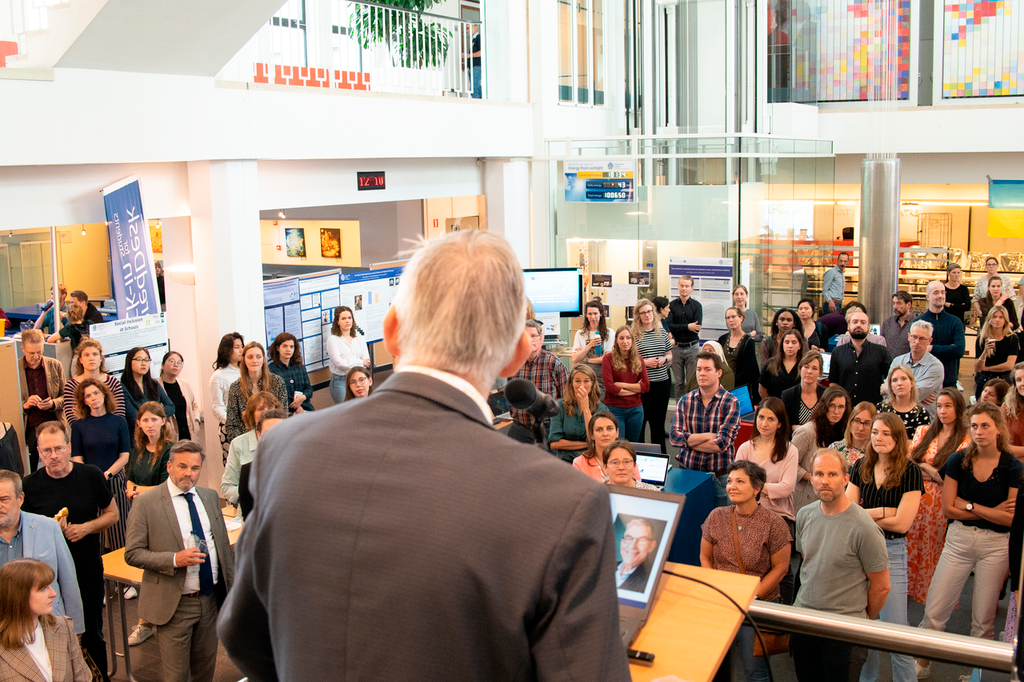
Dean Paul Wouters -
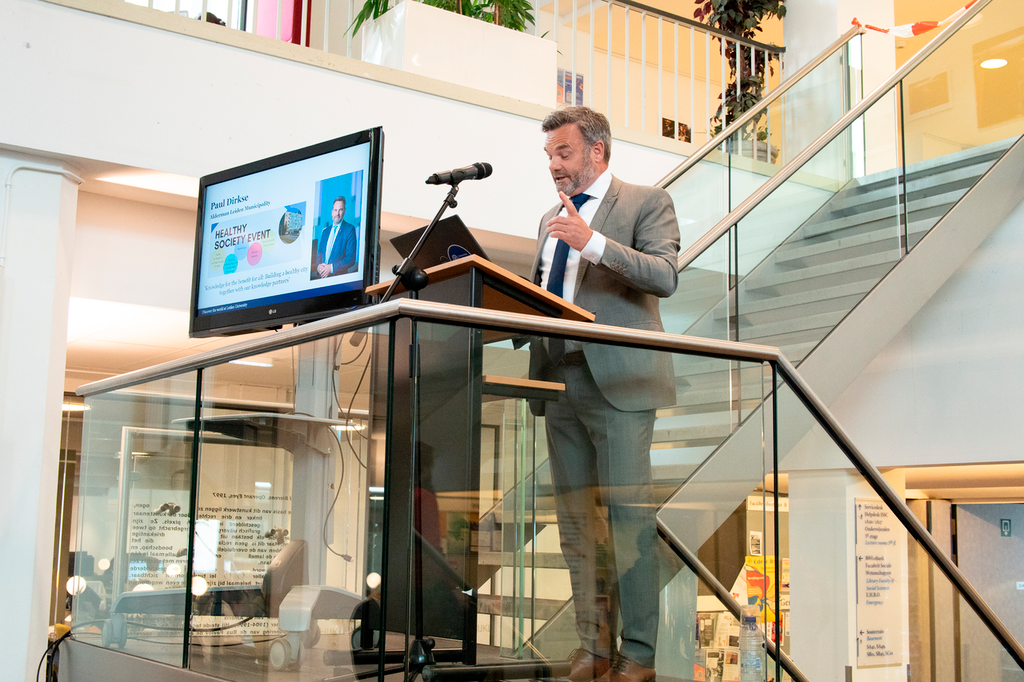
Alderman Paul Dirkse -
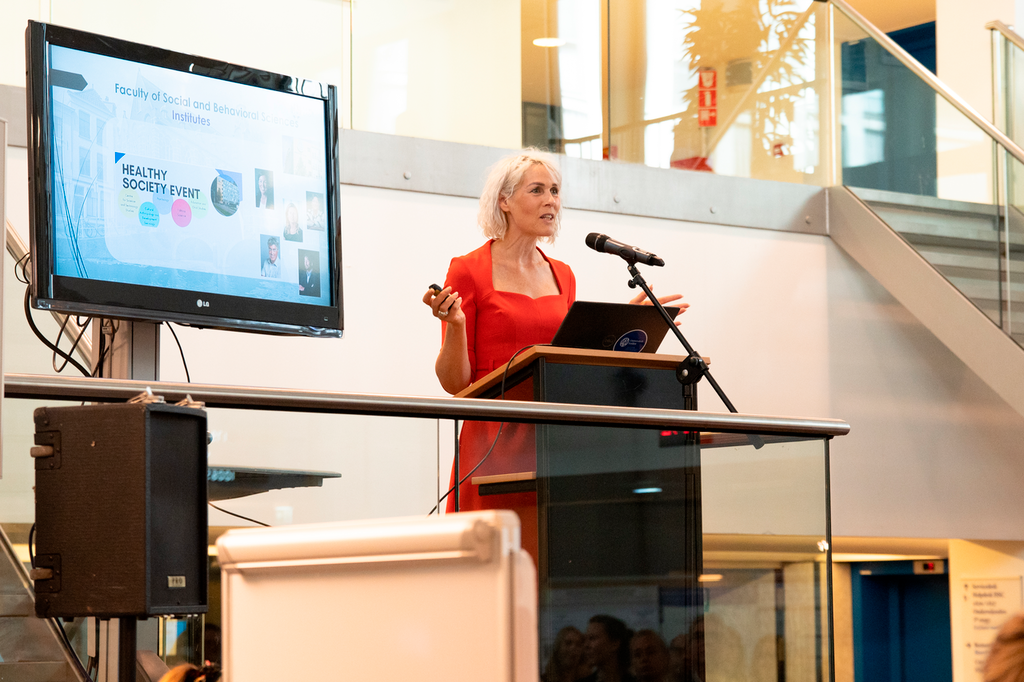
Andrea Evers -
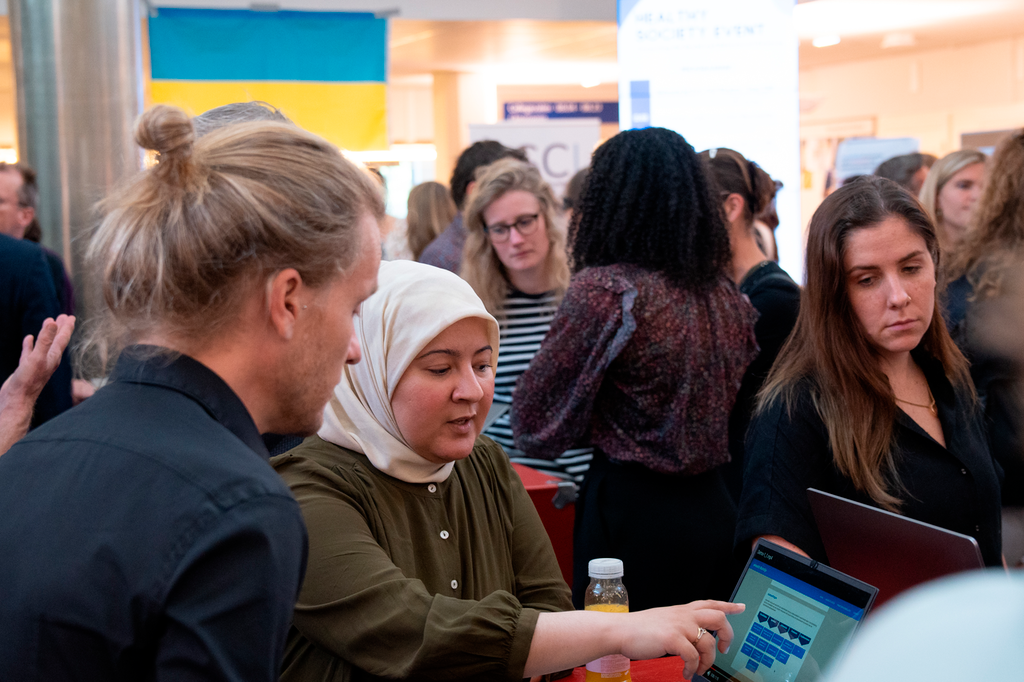
-
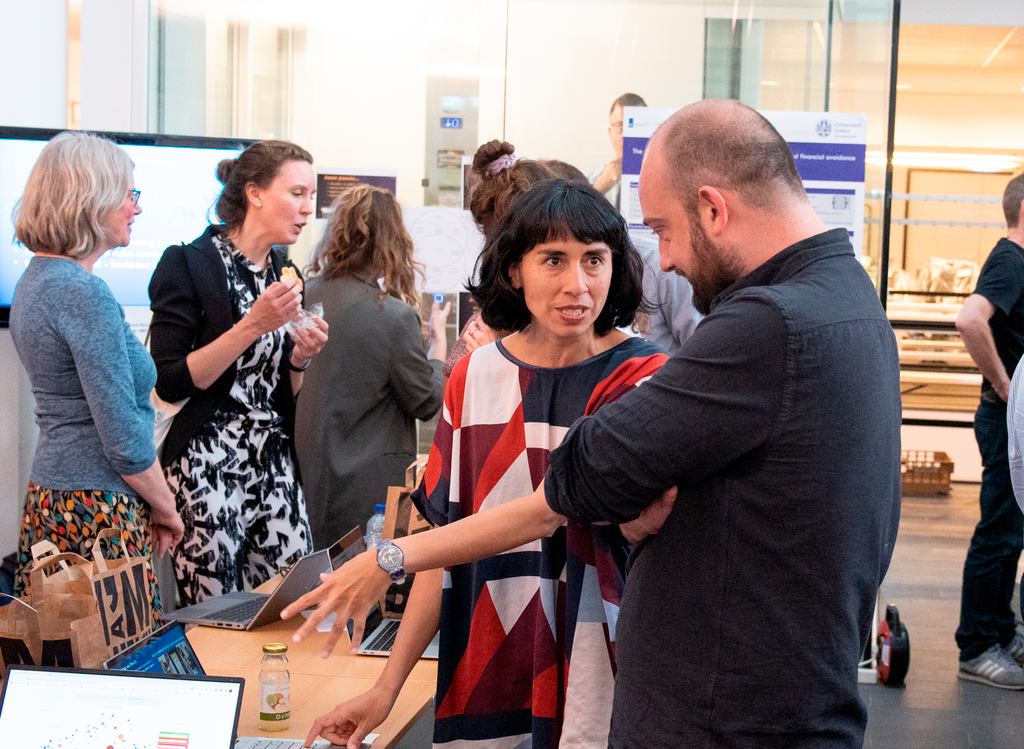
-
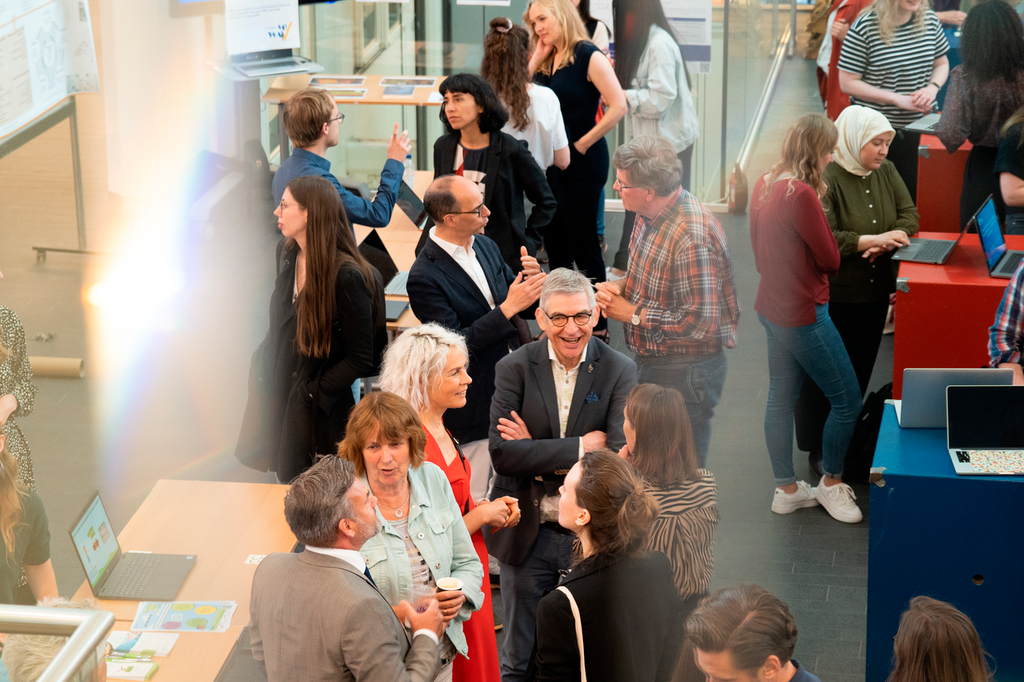
-
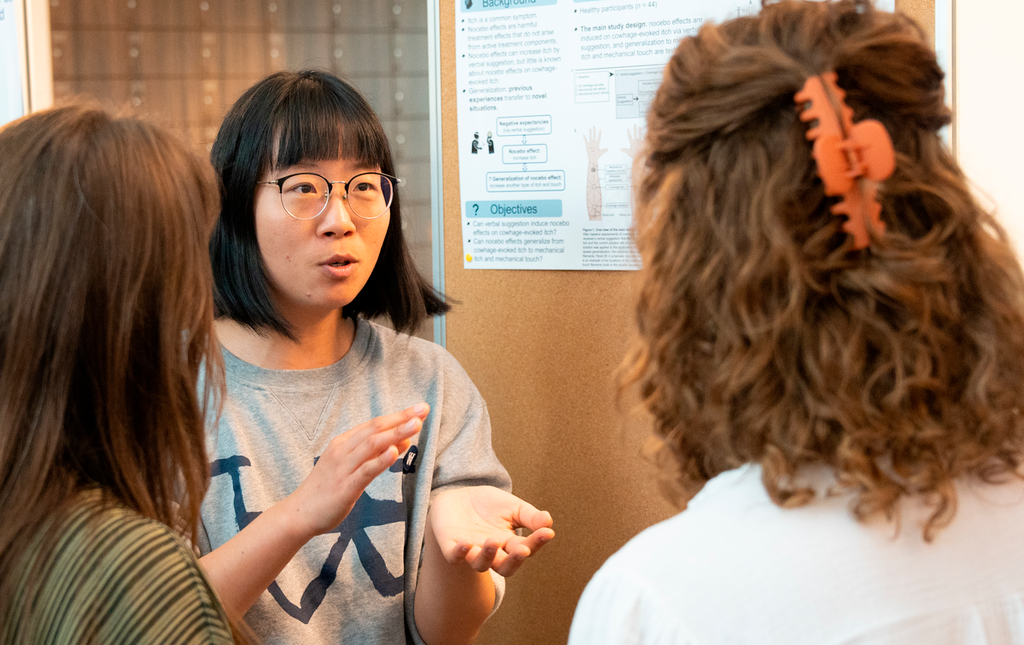
-
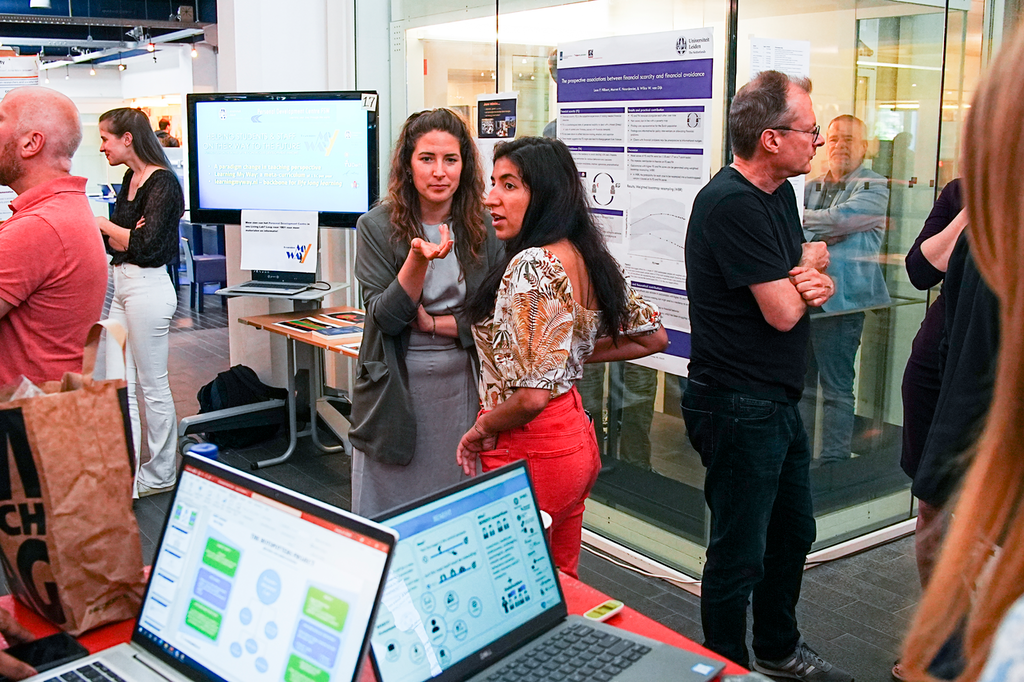
-
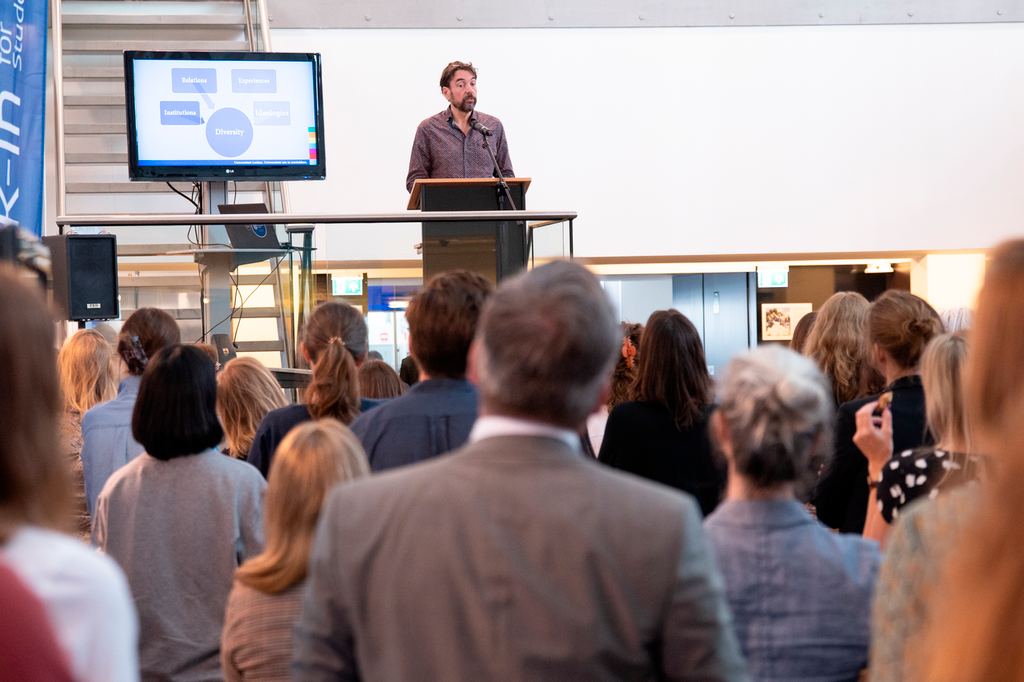
Erik Bähre (Cultural Anthropology and Development Sociology) -
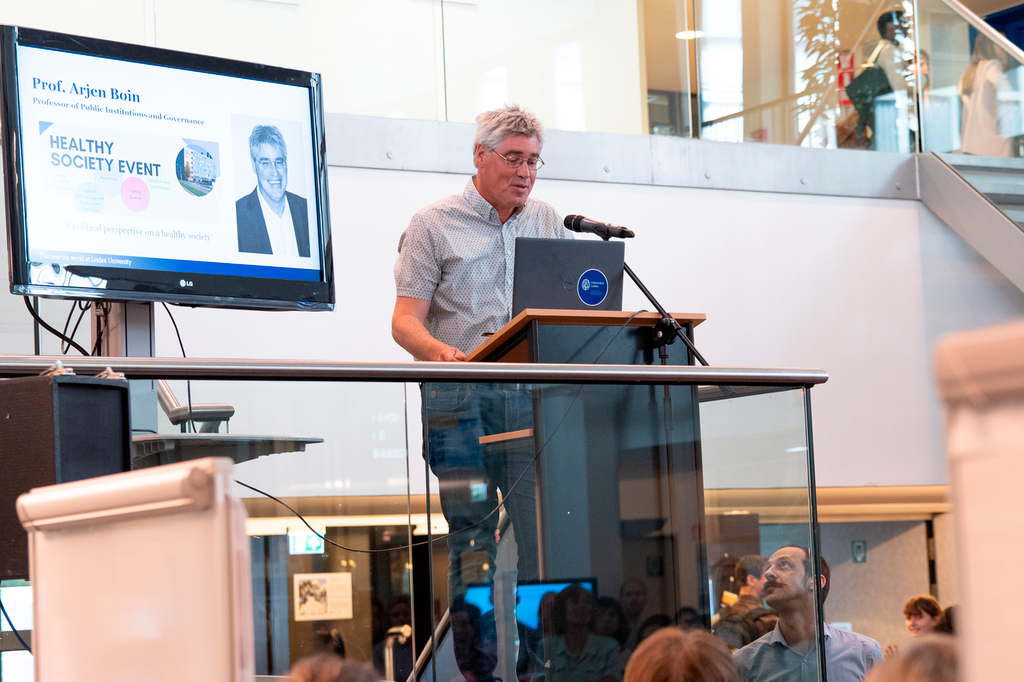
Arjen Boin (Political Science) -
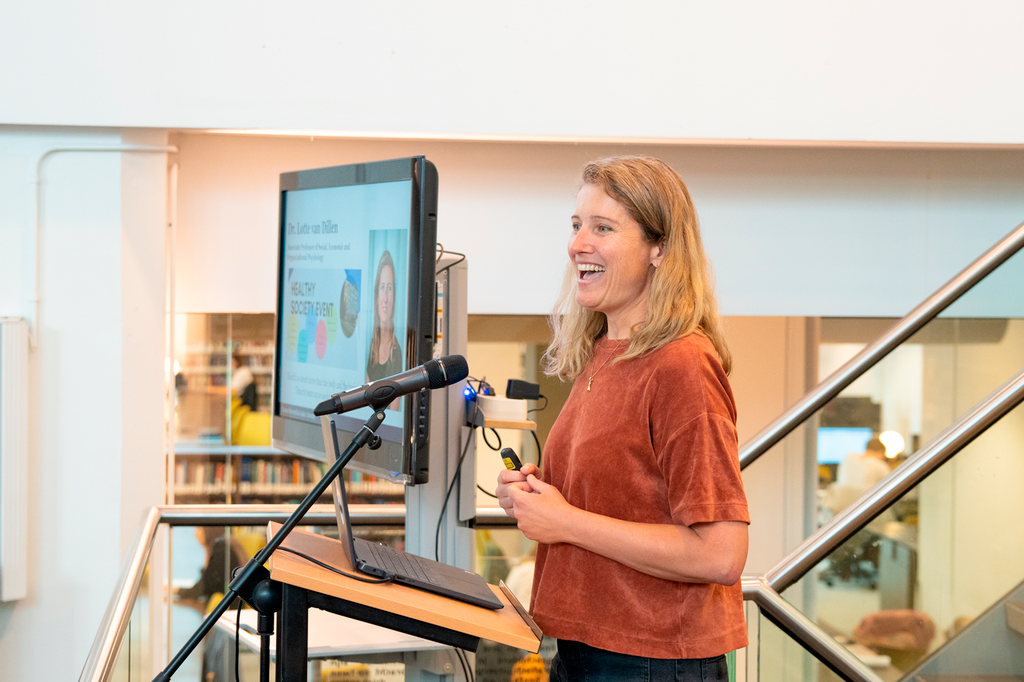
Lotte van Dillen (Psychology) -
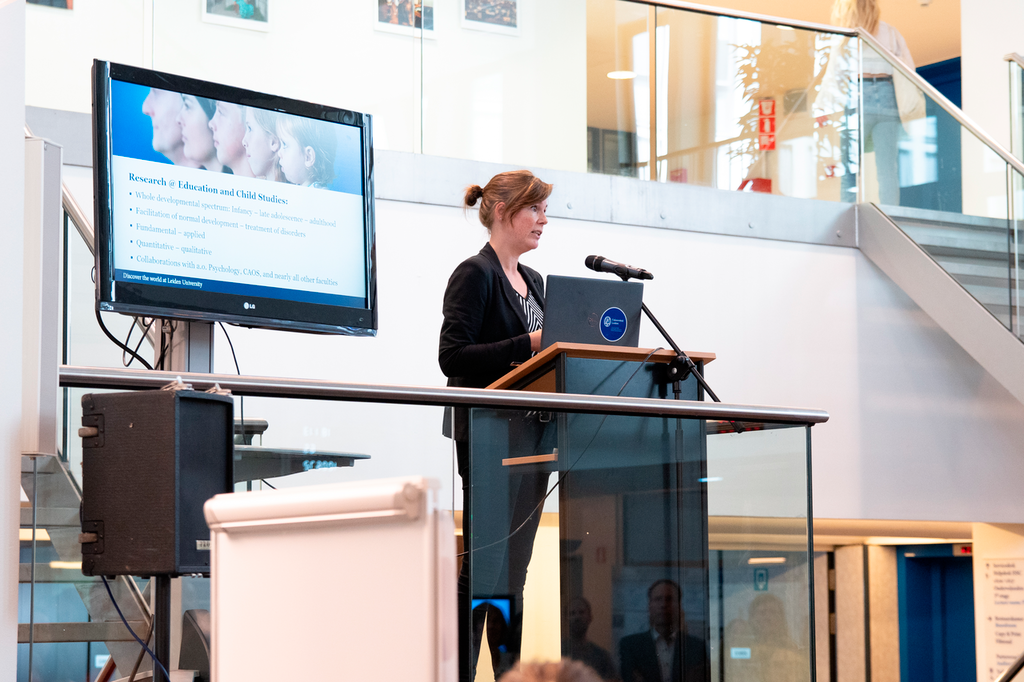
Shelley van der Veek (Education and Child Studies) -
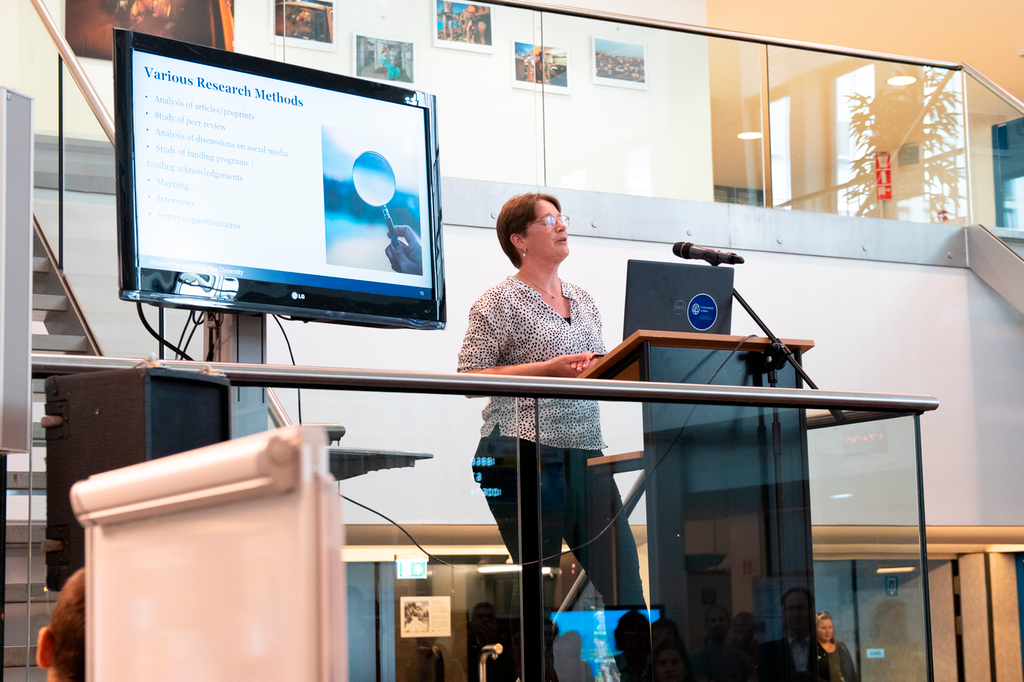
Inge van der Weijden (Centre for Science and Technology Studies)
How our five Institutes contribute to a healthy society
It is clear that a lot of research falling under the strategic theme quality of life in a healthy society is being conducted at the Faculty of Social and Behavioural Sciences, even when we are not always aware of that. That is why five representatives of our Institutes took the stage to explain what is the contribution of their field of interest – an invitation to get to know each other better and seek out more collaboration.
First, on behalf of Cultural Anthropology and Development Sociology, Erik Bähre explains that they approach the concept of healthy society from four main themes: institutions, social relationships, individual perceptions of wellbeing, and ideology discourse.
Arjen Boin describes the viewpoint of Political Science: to a political scientist, a healthy society equals a healthy democracy and a healthy system. Political scientists tend to ask difficult questions, says Boin, also about things that may seem obvious from a health perspective, but may not be so obvious from a political perspective.
On behalf of Psychology, Lotte van Dillen first of all states that it is impossible to look at this topic from only one perspective. Our Faculty’s psychologists therefore not only take individual human factors in healthcare into account, but for example also environmental factors and how resilience contributes to wellbeing.
Shelley van der Veek can keep it short about the pedagogical viewpoint: a healthy society needs a healthy youth, but that is also true the other way around. To be able to study the individual, we have to know how it relates to the environment, because no child grows up in isolation.
Lastly, Inge van der Weijden explains that the Center for Science and Technology Studies also concerns itself with a healthy society. For example, the COVID-19 pandemic has inspired a lot of research and the impact of institutional practices on the mental health of PhD candidates is being studied.
Towards a future of collaboration
With the Institutes’ pitches and a very busy information market with presentations about current research and education, our colleagues display the important contributions that the Faculty of Social and Behavioural Sciences can offer to a healthy society.
This event marked the start of stimulating and inspiring collaboration on this theme within our Faculty. We can tell from the animated conversations happening in the central hall that already new interdisciplinary collaborations have started.
Photos: Abel van de Sluis
Text: Emma Knapper
